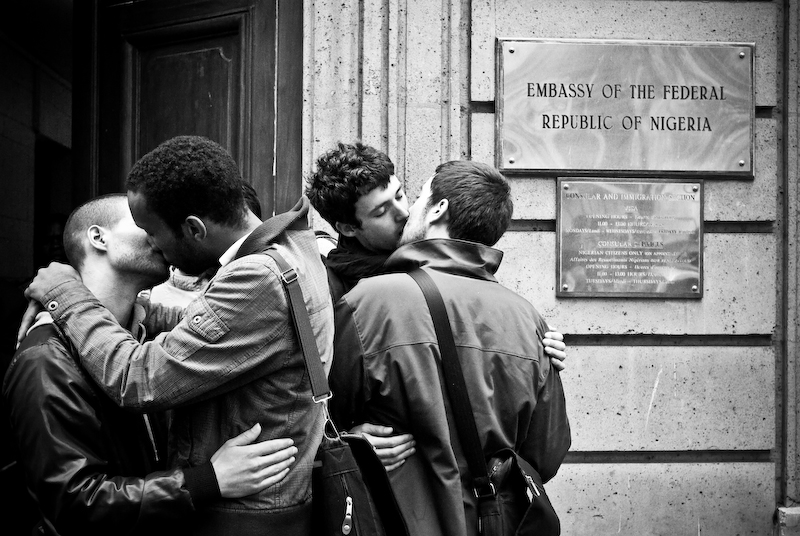

Entrevista a la Dra. Aina Gallego: “Me ha pasado que un alumno intente explicarme principios básicos de estadística”
Por Marc Garcia Palma Aina Gallego es Profesora Asociada del Institut de Barcelona d’Estudis Internacionals e Investigadora en el Institute of Political Economy and Governance. P: ¿Qué impresión le ha dejado la huelga feminista del 8 de marzo? R: ¡Muy positiva! Sobre todo, fue sorprendente a nivel comparado. España es uno de los países donde la huelga feminista tuvo mayor seguimiento y, teniendo en cuenta … Continue reading Entrevista a la Dra. Aina Gallego: “Me ha pasado que un alumno intente explicarme principios básicos de estadística”

La importancia de marchar: diferentes testimonios sobre los sentimiento vividos en la marcha del 8M
Por Rocío Fernández Suárez El pasado 8 de marzo millones de mujeres en toda España salieron a la calle para hacerse oír. Las hijas y las nietas de la “igualdad” descubrimos que ya no lo éramos tanto y despertamos de una mentira que nos habíamos creído hasta el final. Ese mismo día, había sido convocada una huelga general femenina que, según los sindicatos, fue secundada por … Continue reading La importancia de marchar: diferentes testimonios sobre los sentimiento vividos en la marcha del 8M

Women are Overreacting: The Situation is Not That Bad
By: Felipe Ochoa Magrovejo “Women are overreacting: the situation is not that bad.” If you think this is an accurate statement, please find your country and think again: (This list is of countries that IBEI students come from) Afghanistan: 33% of women between 20-24 were married under the age of 18. The country is placed in the 154th position in the Gender Inequality Index Rank … Continue reading Women are Overreacting: The Situation is Not That Bad

I cover my head, not my brain
By Leila Rakib Ortega ‘I cover my head, not my brain’, ‘Islam doesn’t silence me, it empowers me, can you hear me now?’ or ‘feminism without intersectionality is white supremacy’ were some of the slogans beneath which Muslim women united on the 8th of March in Spain’s first national feminist strike. These slogans reflect how these women perceive their situation as women of Muslim faith … Continue reading I cover my head, not my brain

Sin inclusión no hay paz: El verdadero reto del posconflicto colombiano
Por: Ana María Arbeláez Desde el año 2012, Colombia ha sido centro de atención de la comunidad internacional debido al proceso de negociación de paz entre el gobierno del país y la guerrilla de las FARC. El interés que ha despertado este acuerdo, no sólo ante la sociedad colombiana sino también en la comunidad internacional, es entendible en la medida de que, en caso de … Continue reading Sin inclusión no hay paz: El verdadero reto del posconflicto colombiano

La mujer en la política: una asignatura pendiente
Por: Laura Milà Durante su campaña presidencial en 2016, Hillary Clinton recibió numerosas críticas por su tono de voz y forma de vestir desde un amplio sector de medios de comunicación, usuarios de redes sociales y políticos rivales. Muchos criticaron que debería sonreír más en sus discursos y no gritar tanto, que su voz era estridente e histérica. Sin embargo, ni Donald Trump ni Bernie … Continue reading La mujer en la política: una asignatura pendiente

From the Locker Rooms to Executive Offices: International Relations & Boys Club Culture
by James Mesiti While I am honored to be given this platform to discuss questions of international relations, I was hesitant upon learning the theme of this edition of Argus. Being a white male from the United States, I struggled to conjure a topic that not only I would feel confident writing about but also one that I felt I had the right to address. … Continue reading From the Locker Rooms to Executive Offices: International Relations & Boys Club Culture

A Feminist Republic?
By Hana Srebotnjak Using women’s rights in order to promote an otherwise separate political affair or justify an ideology in other respects devoid of feminist concerns is not a new development. Historically, empires continuously evoked the liberation of women to justify their colonial presence. The imperial mission, it was argued, would bring a civilising and modernising element, which included the promotion of women’s rights, into … Continue reading A Feminist Republic?

Why are (almost) all dictators homophobes?
By Hanna Baraban “Better to be a dictator than to be gay,” claimed president of Belarus Alexander Lukashenko six years ago, targeting Guido Westerwelle, ex-Foreign minister of Germany and the first openly gay man to hold such a high office in the EU. If such a verbal attack had come from the mouth of a Saudi Arabian, Qatari or Iranian leader, nobody would even have cared. But … Continue reading Why are (almost) all dictators homophobes?

We’re The Best – in Failing Expectant Mothers
By: Alise Brillault Many of my fellow Americans like to boast that we are Number One. In a humorous article in the Washington Post, author Ingraham lays out the statistical ways in which the U.S. is, in fact, number one – ranging from having the world’s largest economy to ranking at the top for national pride (see graph below). (Figure [1]) However, this article fails to point … Continue reading We’re The Best – in Failing Expectant Mothers

